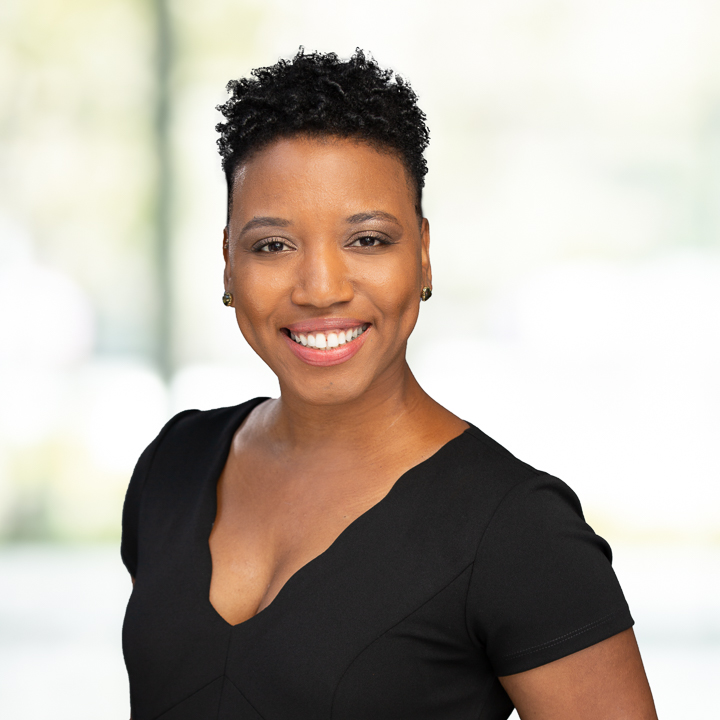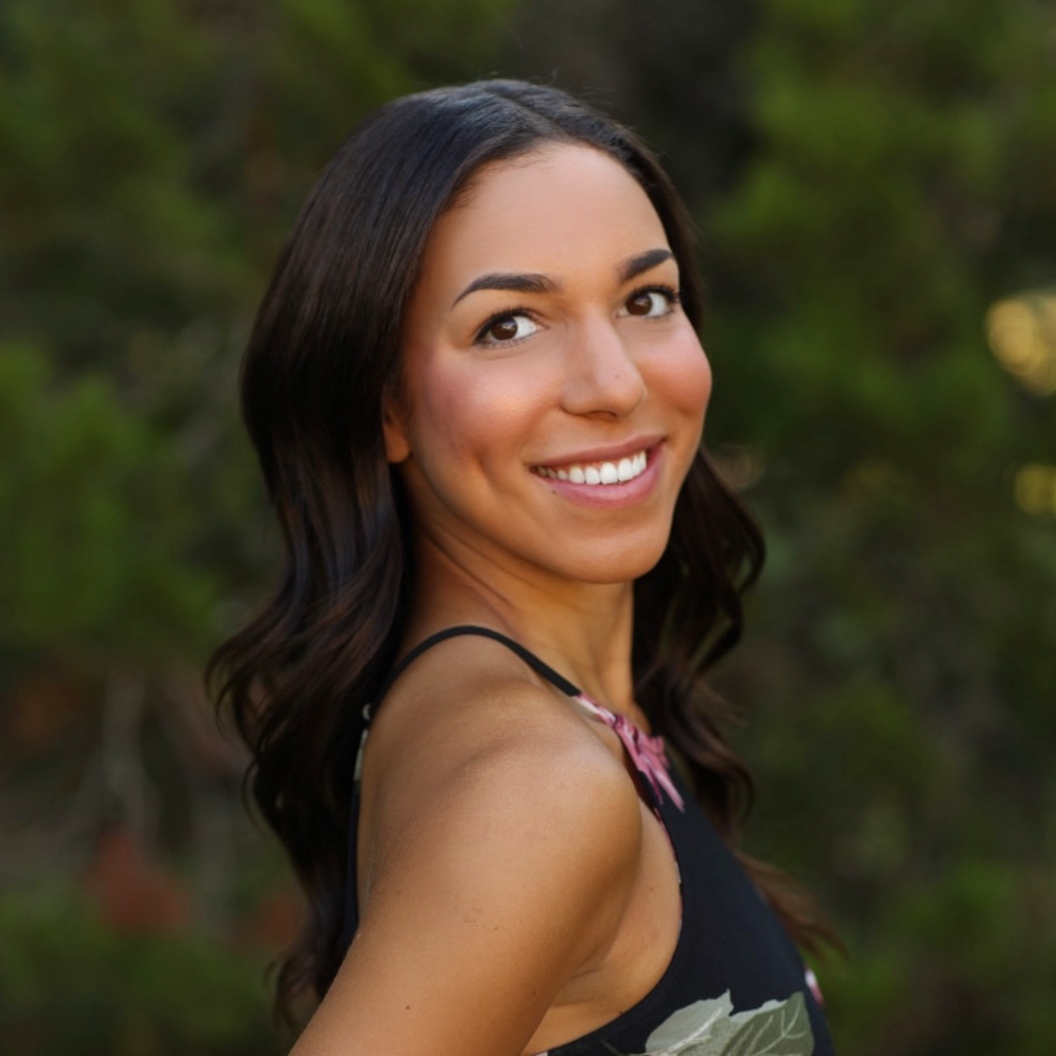Divinc, has announced the nominees for the third annual Champions of Change awards ceremony. Divinc is an organization whose goal is to conceptualize and provide inclusive spaces for entrepreneurs. Every year since 2018 they’ve recognized the true heroes of the Diversity, Equity and Inclusivity (DEI) space in Austin.
Here are a few of the nominees from the Rising Star category.
Courtney Bailey
Director of Issues & Engagement at Leadership Austin

You can trace Courtney Bailey’s passion as a community convener back to her college days at Howard University. Whether as co-president at Howard University Amnesty International, the nation’s first Black college chapter, or as a neighborhood canvasser/door knocker, Bailey has been bringing people together on community issues before she even knew what to call it. Fast forward. As director of Issues & Engagement at Leadership Austin, Bailey leads Engage (a 10-month panel series in partnership with Austin), PBS and Essential (a nine-month civic leadership program for established leaders). Bailey’s main purpose is to connect people, ideas and actions. To inspire change and improve the civic health of the Greater Austin region. Currently, one can find Leadership Austin’s alumni in 84% of top employers, 96% of the top 25 nonprofits and 43% of elected officials in Greater Austin.
Nominee Q&A
What do you think were some of the most successful aspects of DEI for businesses in Austin in 2020? Were there any unexpected negative impacts using the DEI business model?
First, I want to start by sharing how I define diversity, equity and inclusion. Often, we may use the same words but give them different meanings. I define diversity as the way people differ from one another. This includes physical appearance, racial identity, ethnic backgrounds and gender identity. Sexual orientation, socio-economic status, culture, age, ability, beliefs, values, ideas and perspectives. Equity focuses on eliminating barriers by identifying those systems that prevent fairness, access and full participation in our society. This may mean redistributing resources or services in a way that is not necessarily equal (the same) but is fair and allows for the greater advancement of all people. Lastly, real inclusion breaks down traditional power dynamics. To ensure that people most impacted by systemic issues are included in the decision- and policy-making process from start to finish.
When it comes to successful aspects of DEI for businesses in Austin in 2020
The fact that top Austin companies, as well as traditional businesses, are openly embracing and exploring DEI models is a success in many regards. I have also noticed that more Black, Indigenous and People of Color (BIPOC) are hired and sought after to lead DEI initiatives. There was a time when these people and initiatives checked a box. It seems more organizations, businesses and institutions are willing to, at least, engage in ongoing discussions around racial equity, white supremacy and other DEI issues.
The downside of DEI business models
They are only as effective as the people, businesses, organizations and institutions that implement them. It is great that DEI models have become popular. However, it is important to note that popularity grew from the widely sensationalized death of George Floyd. Plastered on social media and television during the beginning of the COVID-19 pandemic. Would these same groups have taken a stand against white supremacy or chosen DEI models had their hands not been forced to some degree?
How do we ensure those BIPOC folks who are hired don’t find themselves silenced, fired or let go when organizational bureaucracies and hierarchies come into play? How do we ensure DEI is not just a fad for those delivering DEI training? For those receiving the services? What does sustainability look like from system to system, industry to industry, community to community? Where is the DEI funding? Who decides how much funding is distributed and where the funding goes? These questions, if left unresolved can and will lead to negative consequences.
Do you think the DEI model for businesses is something to continue in the future? Or should businesses consider a different model for ensuring true equity and inclusivity?
Again, it is not necessarily “the model.”
It is the people who use the model and determine whether the said model is successful or not. Also, I am not sure if there is one DEI model that fits all. What works in Austin Police Department may not work for a tech/media company, such as Facebook. Regardless, the need for DEI will not go away. So it is vital that various models exist under the DEI umbrella. No matter what you call the model(s), the same questions, issues and power dynamics will arise. Which is why it is necessary to identify, assess, evaluate, reevaluate and apply these models constantly.
Ultimately, Diversity, Equity and Inclusion is more than a model, a training or checking the box. DEI is a transformation in systems, a culture shift. It is a new vocabulary and language. DEI is a lifestyle change. DEI is an ongoing experience.
Who are/were some unsung womxn role models of DEI in Austin?
There are so many unsung womxn role models of DEI in our region. There are the unnamed womxn who go to work every day as the only BIPOC in their business or industry. Who attempt to navigate systems that aren’t designed for them to win. These womxn are sometimes the first to speak up and take action but don’t usually get to see the fruits of their labor before they are removed or forced out. There are also the trans womxn, who are usually an afterthought in these conversations around diversity, equity and inclusion. I am guilty of overlooking them as well.
Then we have the womxn who aren’t leading major initiatives or trainings and aren’t the popular choice. But each day they get up and fight the good fight because their lives depend on it. This womxn could be your child, parent, sister, friend, colleague, neighbor, former associate. Or even your “competition.” Which is why they remain unsung.
Instead of telling you who I think deserves acknowledgment (I do have a list), why not make your own list of unsung womxn. Celebrate them by calling them, sending an email, shouting them out on social media, nominating them for an award. Singing their praises even when others may choose to discredit them. Asking how you can better support them or simply standing with them when you see them standing alone.
It is okay to acknowledge that not all womxn get along. That there may be conflict between womxn because resources, attention/lack of attention and other factors may create division. At the end of the day, we are all trying to navigate these systems of oppression while working to upend them.
Savannah L. Barker
VP of Leadership Development at Notley

Savannah Barker is a community builder, program manager and systems enthusiast passionate about helping social impact organizations scale their work. She is currently the vice president of Leadership Development at Notley, where she works across multiple initiatives in a program management and strategic services capacity. Barker helped to relaunch and rebrand Women@Austin, an organization dedicated to helping women entrepreneurs looking to scale their companies. She is currently working to develop NotleyEDU, a digital learning platform that brings entrepreneurial business practices to the nonprofit community.
Nominee Q&A
What do you think were some of the most successful aspects of DEI for businesses in Austin in 2020? Were there any unexpected negative impacts using the DEI business model?
I think the COVID-19 pandemic, related economic crisis and racial justice activism of 2020 really amplified our societal inequities and forced businesses to take a stand in some very positive ways. I’m really proud of the work that my company, Notley, has done to respond to urgent needs in the community while also doubling down on our DEI efforts in-house. Rather than have a dedicated DEI resource at the company, DEI has been a strategic priority across the organization and at all levels of leadership. Which is now clearly reflected in our team.
We also launched several new initiatives in 2020. Notley Tide, which provides funding and capacity-building resources to racial justice nonprofits in Austin; Get Shift Done, which connects unemployed hospitality workers with paid volunteer opportunities with nonprofits; and we launched the Beam Angel Network, which provides funding to women-founded businesses. I think we were made stronger by our existing commitments to DEI and strong community ties. And it’s just uphill from here!
Do you think the DEI model for businesses is something to continue in the future? Or should businesses consider a different model for ensuring true equity and inclusivity?
I strongly believe that DEI cannot exist in a vacuum. In order to truly succeed, we must view DEI as a core business value reflected in the culture at every level of the organization. At Notley, we do not have a single person who serves as our head of DEI. Rather an expectation across all levels of the organization that we will approach our work, from fundraising to marketing to finance, with an inclusive and equitable mindset. I feel this will be the future of how DEI functions in for-profit businesses. Not as a checkmark, but as core to the long-term success of the business.
Who are/were some unsung womxn role models of DEI in Austin?
There are so many amazing women leaders in Austin doing great work. The first two people who come to mind are Aisha Lewis and Tatyana Mann. Aisha spent 2020 launching the Beam Angel Network, which has already raised over $1M to invest in women-founded companies. Tatyana serves as the Diversity, Equity and Belonging Chair for the Young Women’s Alliance. She has already introduced meaningful programming and initiatives to increase the diversity and inclusive nature of the organization. Both Aisha and Tatyana are the type of women putting in work behind the scenes. I’m sure we’ll be seeing more from both of them in the coming years!


